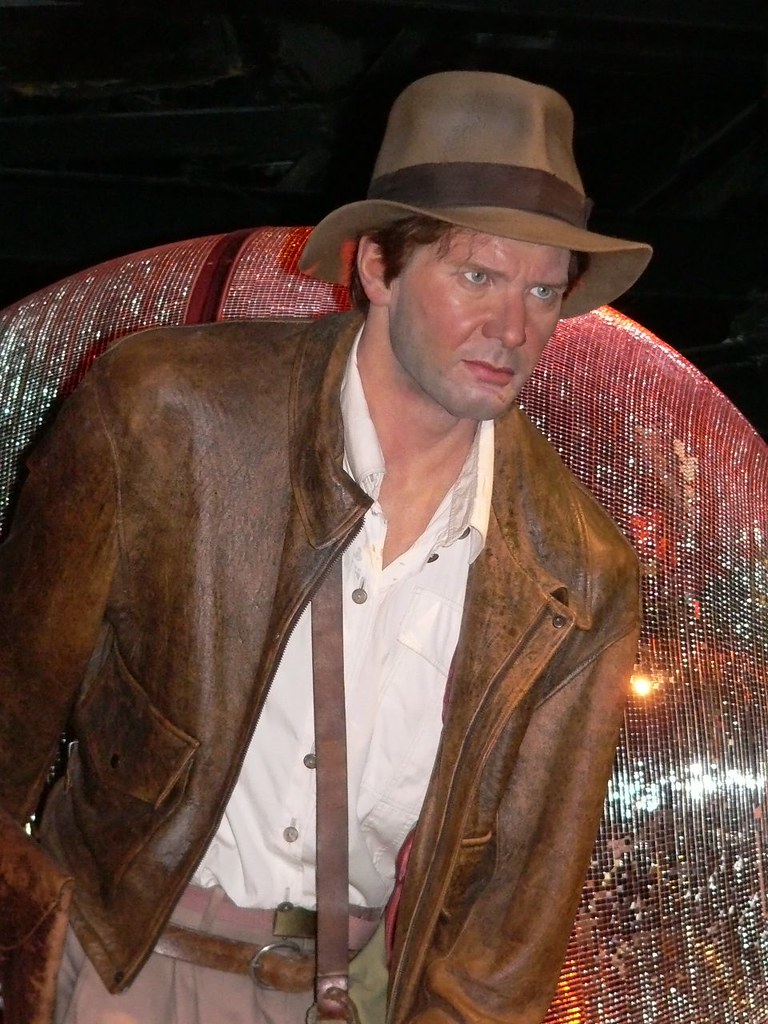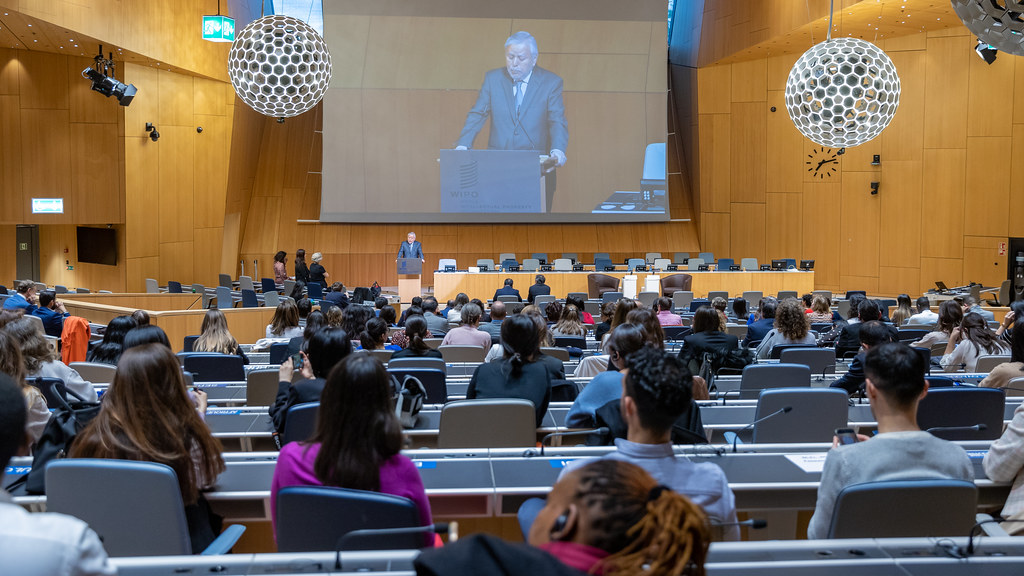
The film industry is a world of constant motion, intricate coordination, and often, long stretches of anticipation. In this high-stakes environment, every detail matters, from the flicker of a light to the hushed murmurs of the crew. Yet, in our hyper-connected age, one small device threatens to shatter this delicate ecosystem: the ubiquitous smartphone. We’ve all seen it – the collective dive into glowing screens the moment “cut” is called, the furtive checks between takes, the ever-present hum of digital life threatening to pull individuals out of the moment.
While many sets tolerate or even embrace the digital tether, a growing cohort of visionary directors is taking a hardline stance. They are orchestrating a deliberate return to an old-school ethos, creating an almost monastic atmosphere where the art of filmmaking is the sole focus. Foremost among these proponents of digital detox is Quentin Tarantino, a filmmaker renowned for his meticulous craft and uncompromising vision. His sets are not just phone-free zones; they are statements, living experiments in human presence and collaborative spirit.
This isn’t merely about preventing a stray ringtone from ruining a take, though that was certainly the catalyst for Tarantino’s infamous ban. It’s a much deeper exploration into the psychology of focus, the dynamics of team cohesion, and the very essence of what it means to be truly *present* in the creation of art. As we delve into the multifaceted reasons and impacts behind these directorial decrees, we’ll uncover not just a set of rules, but a philosophy reshaping how movies are made in the 21st century.
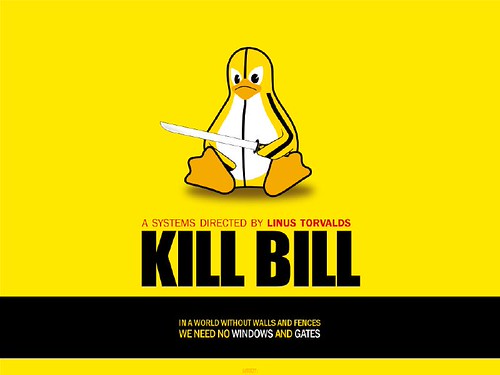
1. **The ‘Kill Bill’ Catalyst**It’s a scene etched into the lore of Hollywood discipline, a seemingly minor disruption that sparked a seismic shift in how one of cinema’s most celebrated auteurs manages his creative space. The year was 2003, and Quentin Tarantino was deep in the intricate production of “Kill Bill.” This was a film demanding absolute precision, a vibrant tapestry of martial arts, revenge, and stylized violence. Amidst the intense choreography and dramatic performances, a jarring sound pierced the meticulously crafted atmosphere: a phone call, ringing loudly during a crucial scene featuring actor Michael Madsen. This wasn’t just an inconvenience; it was an interruption that, according to Tarantino himself, “ruined the scene and threw the whole rest of the night in a bad way.”
Tarantino’s reaction was, predictably, one of profound frustration. He recounted in a 2016 interview with Coup De Main, “I was really f***ing pissed off.” In that moment of heightened emotion and disrupted artistic flow, an assistant director (A.D.) offered a surprisingly simple, yet radical, solution. The A.D. reportedly reminded Tarantino, “Quentin, we’re giving them these phones, we can take them away.” This statement, born from practical observation, resonated immediately with the director’s conviction that the integrity of the filmmaking process was paramount, and that modern distractions were actively undermining it.
The decision was swift and uncompromising. Tarantino declared, “I was like, ‘Yes, let’s do it.’ And then from that point on, we had a complete ban on cell phones and almost every kind of electronics.” This initial broad stroke revealed an understanding that it wasn’t just phone calls, but any electronic device that could produce a distracting sound or, more broadly, pull attention away from the collective endeavor. A subsequent incident, where the whirring sound of a laptop turning on interrupted a scene, solidified his resolve: “I don’t want any f***ing electronics on my set. Ever since!” The “Kill Bill” incident, therefore, wasn’t merely a moment of annoyance, but the foundational crack that allowed Tarantino to construct an entirely new, digitally sterile environment for his cinematic visions.
Read more about: New Tesla Recall: Model 3 and Y Rollaway Risk Due to Software Glitch – An In-Depth Look at Tesla’s Evolving Vehicle Landscape
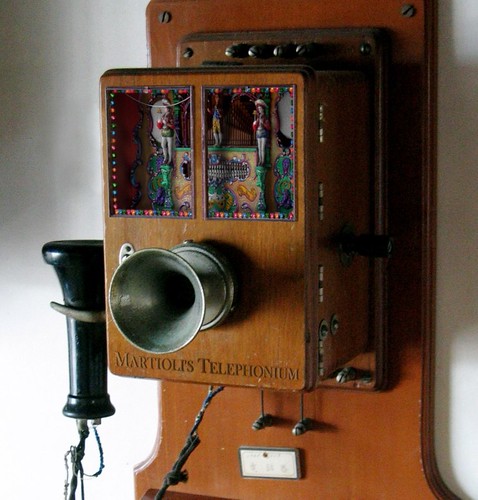
2. **Beyond the Ringtone: Loss of Presence**What began as a reactive measure to prevent immediate scene disruptions quickly evolved into a more profound philosophical stance for Quentin Tarantino. As cell phones, particularly smartphones, advanced dramatically in the years following “Kill Bill,” their impact on human interaction and focus became undeniably pervasive. Tarantino noted that the issue transcended mere accidental ringtones or laptop whirs; it was about the fundamental way these devices reshaped an individual’s presence, even when physically on set. The Oscar winner observed that banning phones “ended up having a more profound aspect than even that, than even just circumventing somebody ruining the scene.”
He articulated a critical insight into modern human behavior, stating, “Because what’s happened, is these smartphones are so prevalent now on sets, that people really aren’t even there, when they’re there. They’re not 100% present.” This powerful observation highlights a core challenge of the digital age: the physical presence of a person does not always equate to their mental or emotional engagement. Crew members and actors, though standing on a meticulously designed set, might be simultaneously checking social media, browsing the web, or managing personal affairs through their devices, effectively detaching themselves from the immediate creative undertaking.
This subtle yet constant fragmentation of attention became the deeper target of Tarantino’s ban. It wasn’t just about preventing a loud noise; it was about reclaiming the undivided focus essential for collaborative art. The director understood that while someone might appear to be listening or observing, if their mind is flitting between the scene in front of them and their “Facebook page,” a vital layer of collective consciousness is lost. This expansive view reframed the ban from a simple rule of conduct into a deliberate strategy for fostering an environment of absolute, uncompromised presence, ensuring every mind on set was genuinely attuned to the moment of creation.

3. **Cultivating Crew Cohesion**One of the most remarkable, and perhaps unforeseen, benefits of Quentin Tarantino’s stringent cell phone ban has been the palpable shift it creates in the social dynamics of his film sets. Far from being a source of resentment, the absence of personal electronics has, by many accounts, become a powerful catalyst for fostering genuine unity and connection among the cast and crew. Tarantino himself observed, “by banning them from the set, the whole crew tends to work tighter with each other.” This isn’t just a casual observation; it speaks to a fundamental human need for interaction that smartphones often inadvertently suppress.
The director recalled a time when film crews were inherently closer, before the ubiquitous presence of smart devices created individual digital silos. By removing these distractions, his sets spontaneously reverted to an older, more connected model of collaboration. Crew members and actors, stripped of their digital escapes during downtime, found themselves engaging in conversations, sharing stories, and forging bonds that might otherwise have been missed. Tarantino highlighted this as a transformative experience, where “people kind of fall in love with the idea, ‘This is the film-industry that I signed up for! This is really wonderful.’” It speaks to a deep, underlying desire within the creative community for genuine, unfettered connection that the modern era often stifles.
The stark contrast becomes evident when comparing Tarantino’s sets to those where the ban isn’t enforced. Actors and crew who experience the heightened camaraderie of a phone-free environment often find it difficult to readjust to the digital fragmentation prevalent elsewhere. Tarantino noted, “But then they go back to another set and everybody’s on their cell phone, everyone’s in their own little box, and they get depressed about it.” This sentiment underscores the profound impact of the ban, not just on the immediate production, but on the overall job satisfaction and mental well-being of those involved. It transforms a perceived restriction into a celebrated gift, a return to the communal heart of filmmaking.
Read more about: Transform Your Home: Simple Backyard Projects That Instantly Boost Your Curb Appeal

4. **The ‘Checkpoint Charlie’ Protocol**The enforcement of Quentin Tarantino’s no-phone policy is not left to chance; it is a meticulously organized system, often described in terms that evoke military checkpoints rather than typical film set procedures. This stringent approach ensures that the ban is not merely a suggestion but an absolute rule, integrated into the daily operations of the production. As producer and assistant director William Paul Clark, who has worked with Tarantino since “Pulp Fiction” days, explained, the system is designed to be clear and unavoidable for everyone involved, from the most seasoned veteran to the newest intern.
A dedicated staff member is assigned the critical role of collecting phones. This individual manages what has been colloquially dubbed “Checkpoint Charlie,” a designated area where all personal electronic devices must be surrendered upon arrival. Clark humorously added, “He’ll even charge it if you want,” highlighting that while the rule is strict, practical needs are still considered. This system removes the temptation and the possibility of accidental infractions, providing a secure place for phones while simultaneously liberating individuals from the constant pull of their screens during working hours. It’s a logistical solution to a behavioral challenge, proactively addressing potential issues before they arise on set.
The unwavering implementation means that “It’s accepted and it’s known that if a phone goes off on set, that’s your last day,” according to Clark. This unambiguous communication of the policy from the outset leaves no room for misunderstanding or excuses. Actor Timothy Olyphant further confirmed that “Outside the set we’d have a lovely little booth for everyone to check their phones in. That’s where all of our phones would be. If you needed to make a phone call, you’d go out to the street to make a phone call.” This regimented system, though initially perhaps daunting, ultimately contributes to an environment where focus is not just encouraged, but structurally enforced, fostering an unparalleled level of dedication to the craft.

5. **Zero-Tolerance Enforcement**While the “Checkpoint Charlie” system is designed to prevent infractions, the consequences for any breach of Quentin Tarantino’s cell phone ban are swift, decisive, and exceptionally severe. This is not a policy enforced with warnings or second chances; it is an absolute decree with immediate, career-altering repercussions. The strictness of this rule underscores Tarantino’s unwavering commitment to maintaining a sacred space for filmmaking, one where external distractions simply cannot be tolerated, regardless of the individual’s role or status on set.
Actor Timothy Olyphant, who worked with Tarantino on “Once Upon a Time in Hollywood,” provided a vivid firsthand account of the director’s uncompromising stance. He stated on The Rich Eisen Show, “Cell phone out? [You’re fired.] Done. No warning, nothing, you’re going home.” This stark reality demonstrates the gravity with which Tarantino views any deviation from his policy. It’s a powerful deterrent, signaling to everyone on set that their presence and focus are expected to be entirely dedicated to the film, without any digital divides. Olyphant further emphasized, “I’m not telling tales. Outside the set we’d have a lovely little booth for everyone to check their phones in. That’s where all of our phones would be.”
Even though William Paul Clark mentioned he couldn’t recall anyone ever being fired for a phone incident, he did recall a “fruitless manhunt after a ringtone sounded during the filming of Django Unchained,” which speaks to the intense seriousness with which such incidents are treated. The threat of immediate dismissal, confirmed by multiple sources, creates an atmosphere of profound discipline and respect for the director’s vision. It ensures that when people are on a Tarantino set, they are “here, and this is what we are doing, and we are going to take it really seriously,” as Olyphant eloquently put it. This extreme measure reinforces the core philosophy: the art comes first, always.
Read more about: Behind the Wins: 7 Athlete Misdeeds from Major Sports Leagues That Were Downplayed by the Media

6. **The Sacredness of the Set**At its heart, Quentin Tarantino’s rigid cell phone ban transcends mere logistical control; it is a profound declaration about the sanctity of the artistic process itself. The policy is less about protecting secrets or preventing leaks, although those are ancillary benefits, and more about creating an unadulterated environment where the craft of moviemaking can flourish without the insidious creep of modern digital distractions. This philosophical stance elevates the work on set from a job to a “sacred endeavor,” as various reports have described it, demanding absolute reverence from all participants.
Timothy Olyphant explicitly confirmed this deeper motivation, stating that the no-phone policy “wasn’t about maintaining secrecy or preventing leaks.” Instead, he explained, “it was meant to create an environment focused on art and moviemaking.” He elaborated on the director’s intent: “We aren’t going to be over there, doing some other thing. We are here, and this is what we are doing, and we are going to take it really seriously.” This perspective frames the ban not as a punishment, but as a gift that allows everyone to be fully immersed in the creative flow, free from the constant pull of personal digital worlds. It’s a call to arms for collective dedication, ensuring every individual’s energy is channeled into the singular purpose of bringing the film to life.
For Tarantino, who is “very passionate about movie-making and highly detail-oriented,” and “involved in every aspect of his movies, from camera to costumes,” this unwavering focus is paramount. His approach to filmmaking is characterized by “discipline and reverence,” often starting each day by “rallying the crew with an enthusiastic group cheer.” The ban on electronics aligns perfectly with this ethos, serving as a constant reminder that the set is a space for intense collaboration and artistic purity. It ensures that the collective gaze remains fixed on the magic unfolding in front of the camera, unclouded by the distractions of the outside world, thereby safeguarding the integrity of the creative vision.
Read more about: Decoding the Universal Quartet: An In-Depth Journey Through the Enduring Significance of the Number Four Across Science, Culture, and History

7. **Christopher Nolan’s Foundational Rule**Quentin Tarantino is not alone in his stringent approach to on-set cell phone usage. Another titan of modern cinema, Christopher Nolan, has long maintained a similar, uncompromising “no-phone zone” on his productions, operating from a remarkably similar philosophical bedrock. Like Tarantino, Nolan’s reputation for meticulous filmmaking and an unwavering vision precedes him, making his stance on digital distractions a logical extension of his broader artistic principles. This convergence of policy from two such influential directors suggests a deeper, systemic issue within the film industry that they are both actively combating.
Nolan, known for blockbusters like “Dunkirk,” has gone on record to express his certainty that his no-phone rule will become the industry standard. He predicted, “In a few years nobody is going to be allowing that on sets,” firmly believing that the current acceptance of phone use is a temporary phase. He articulates a future where professionalism inherently means digital disconnection during work hours, seeing his own sets as a precursor to a more disciplined and focused cinematic landscape globally. This perspective underscores a conviction that the current smartphone culture, still relatively young, is undergoing an necessary evolution towards more defined boundaries.
The core reasoning behind Nolan’s ban echoes Tarantino’s concerns about presence and focus. He bluntly labels the habit of constant phone checking as an “unprofessional lack of concentration.” His rule is simple: “If you need to make a phone call or use your phone to text, you go off set.” This approach, though less dramatically enforced than Tarantino’s no-warning firings, still establishes a clear boundary between personal digital life and professional creative engagement. Both directors, despite their distinct styles, share an understanding that true focus is a prerequisite for creating compelling cinema, and that modern technology, while convenient, often stands as an impediment to that crucial concentration.
Diving deeper into the philosophical underpinnings and practical implications of such stringent policies, we uncover a fascinating landscape of directorial conviction, actor adaptation, and the enduring quest for unblemished artistry in an increasingly connected world. Beyond the initial spark of an interrupted scene, these bans tap into fundamental questions about human focus, professional etiquette, and the very soul of collaborative creation.
Read more about: Secret Tragedies: 12 Beloved DC Movie and TV Actors Whose Quiet Departures Left Lasting Legacies
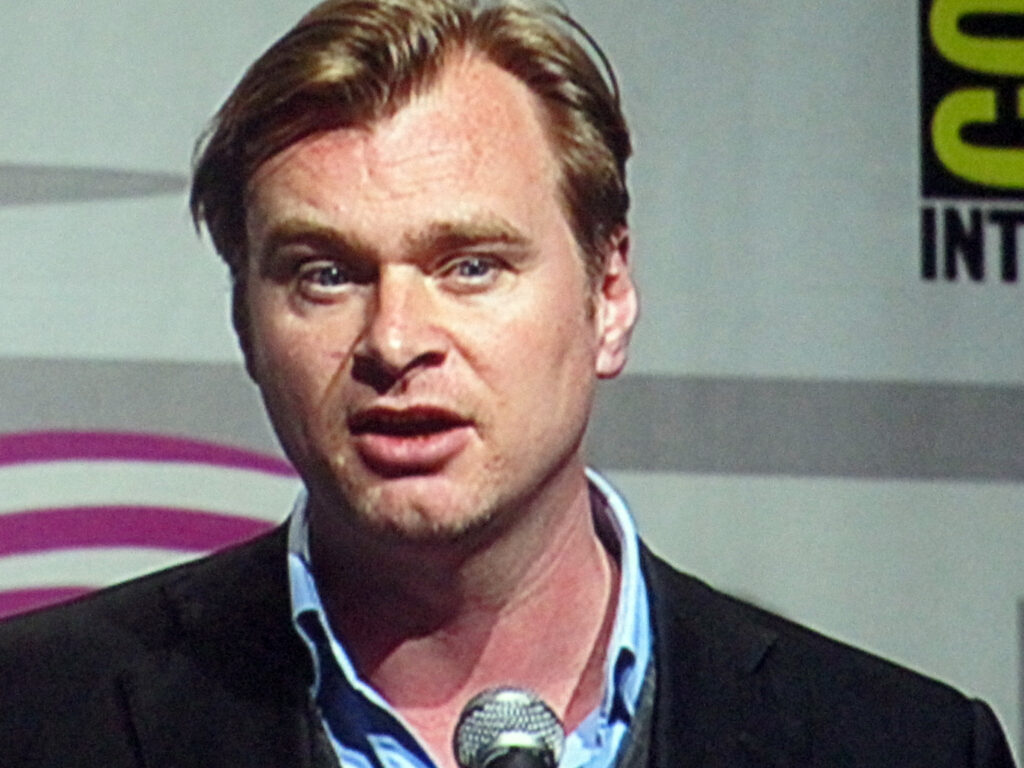
8. **Christopher Nolan and the ‘Multitasking Myth’**Christopher Nolan, much like Tarantino, operates from a place of deep conviction regarding on-set focus, and his reasoning cuts right to the heart of modern cognitive science. He famously dismisses the notion of multitasking as an intellectual fallacy, asserting, “The way the human brain works, there’s no such thing as multitasking. It’s a myth in intellectual terms. You process information linearly so when you look down at your phone, you are stepping out from the other conversation you’re having.” This isn’t just a director’s personal preference; it’s a statement on the inherent limitations of human attention.
For Nolan, this linear processing means that every glance at a phone, every quick check of a notification, fundamentally pulls an individual out of the immediate, collaborative conversation of filmmaking. It fractures focus, even if momentarily, diminishing the collective presence that is so crucial to the intricate ballet of a film set. The implication is clear: if you are physically present but mentally elsewhere, engaging with a screen, you are not truly contributing to the moment.
This intellectual underpinning elevates the phone ban from a mere rule of conduct to a foundational principle of efficient and profound artistic creation. It positions the use of a smartphone on set not just as a distraction, but as an act that actively undermines the very mechanism by which creative synergy is achieved. Nolan’s foresight suggests that such an understanding will eventually become the industry standard, transforming what is currently seen as a stricture into common professional practice.
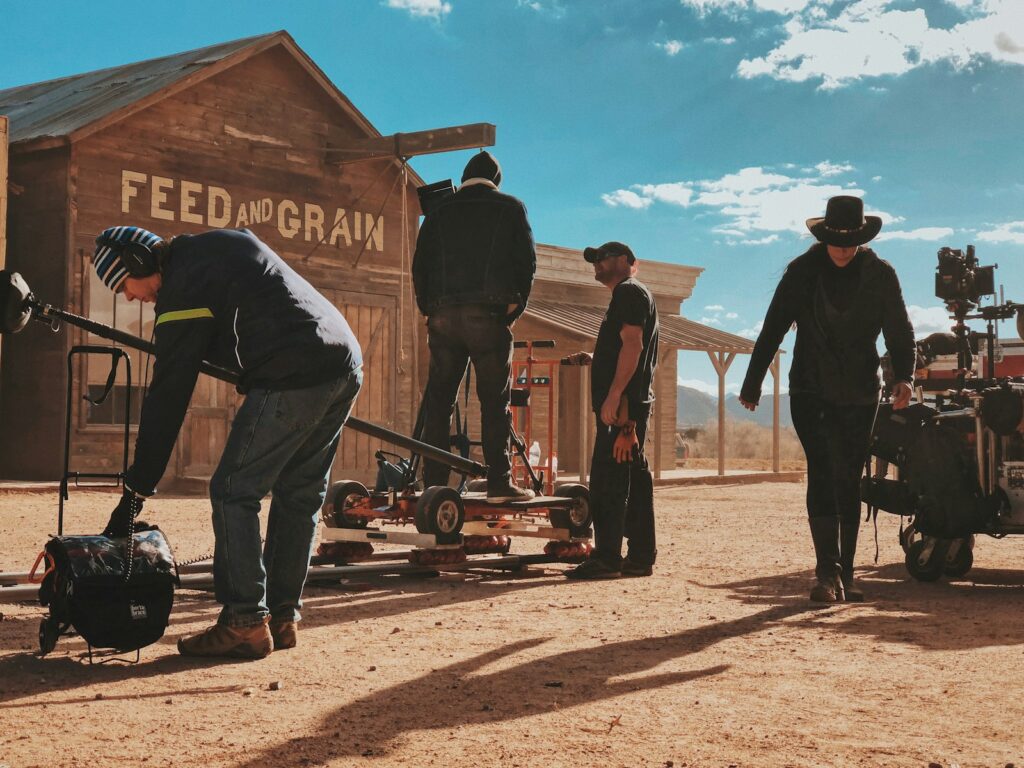
9. **Security Concerns and Preventing Leaks**While actor Timothy Olyphant emphasized that Tarantino’s no-phone policy was primarily about fostering an environment focused on art rather than maintaining secrecy, the reality of modern filmmaking dictates that security concerns are an ever-present consideration. In an age where nearly every smartphone is equipped with a high-quality camera and internet connectivity, the potential for unauthorized leaks of footage, scripts, or behind-the-scenes glimpses is a legitimate and often costly risk for studios and filmmakers alike.
Tarantino himself experienced the harsh realities of this threat when the script for his film “The Hateful Eight” was leaked online, almost leading him to abandon the project entirely. This incident underscores the vulnerability of creative works in progress to digital dissemination, irrespective of a director’s primary motivation for banning phones. The collective presence of numerous devices on a set, each capable of capturing and transmitting sensitive information, creates a significant security challenge.
Therefore, even if not the primary driver for a director like Tarantino, the inherent leak prevention aspect of a phone ban remains a critical, albeit secondary, benefit. It serves as an unspoken layer of protection for the intellectual property being created, safeguarding everything from plot details to costume designs from premature public exposure. In this way, the phone ban acts as a digital perimeter, preserving the controlled release of a film’s narrative and aesthetic.
Read more about: The Homeowner’s Comprehensive Guide to Calibrating Your Water Softener for Peak Efficiency
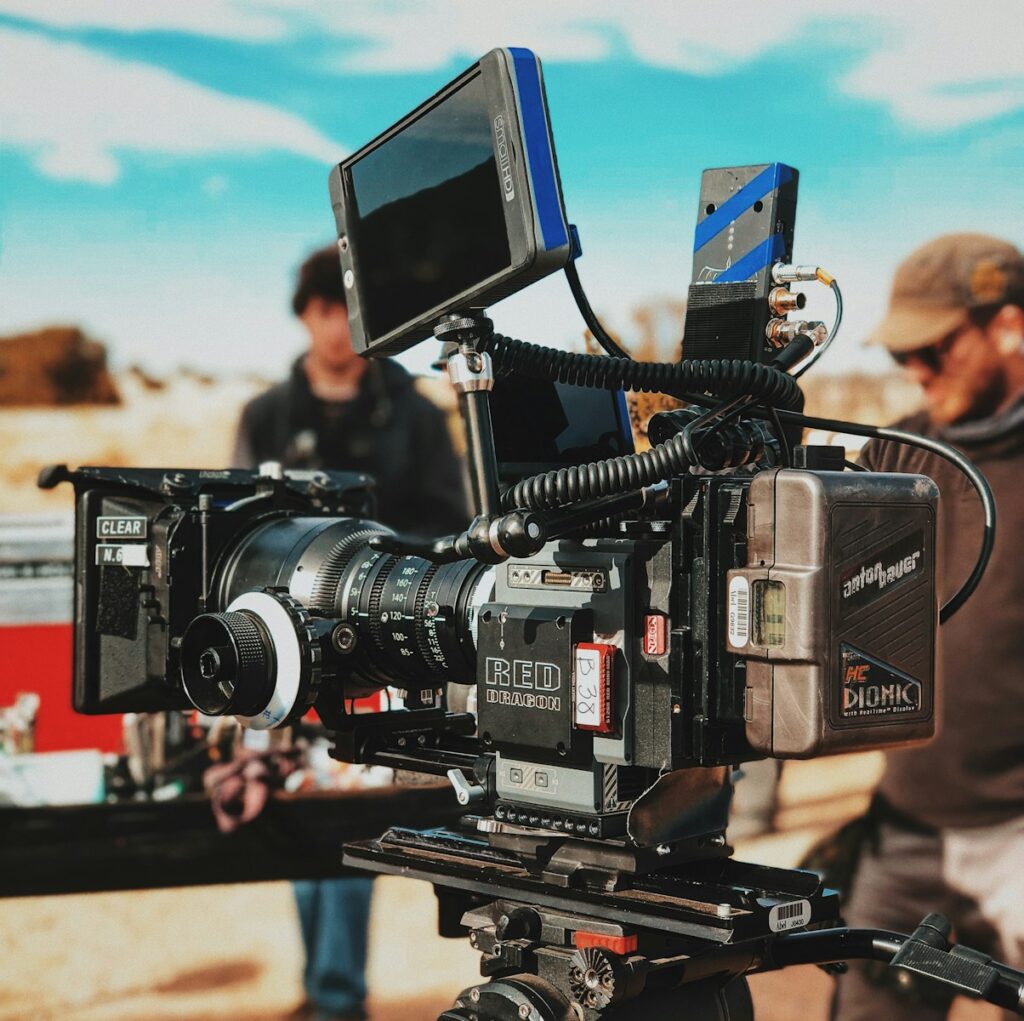
10. **Alignment with Old-School Filmmaking Values**The insistence on phone-free sets by directors like Tarantino and Nolan also speaks to a broader reverence for traditional, old-school filmmaking values. Both directors are vocal advocates for classic film stock over digital cinematography, reflecting a deeply ingrained appreciation for the tangible, focused craft of cinema from a bygone era. Their phone bans can be seen as an extension of this philosophy: a deliberate effort to recreate an environment where human interaction and unadulterated focus reign supreme, mirroring the sets of earlier decades.
Before the advent of smartphones, film sets were inherently more communal spaces. Downtime was filled with conversations, shared observations, and spontaneous interactions, fostering a tangible sense of camaraderie and collective purpose. By removing the digital crutch, these directors are not just eliminating distractions; they are actively cultivating a return to this more integrated, hands-on mode of production, where every individual’s attention is genuinely vested in the present moment of creation.
This approach transforms the film set into a kind of temporal bubble, a sacred space where the relentless pace and digital fragmentation of the outside world are temporarily suspended. It allows for a deeper, more immersive engagement with the material, ensuring that the art of moviemaking is approached with a discipline and reverence that might otherwise be compromised by the insidious creep of digital life. It’s a statement that, for these filmmakers, the craft of cinema demands nothing less than absolute presence.
Read more about: The Enigmatic Exit: Unraveling the True Reasons Why Joe Pesci Became Hollywood’s Most Fascinating Recluse
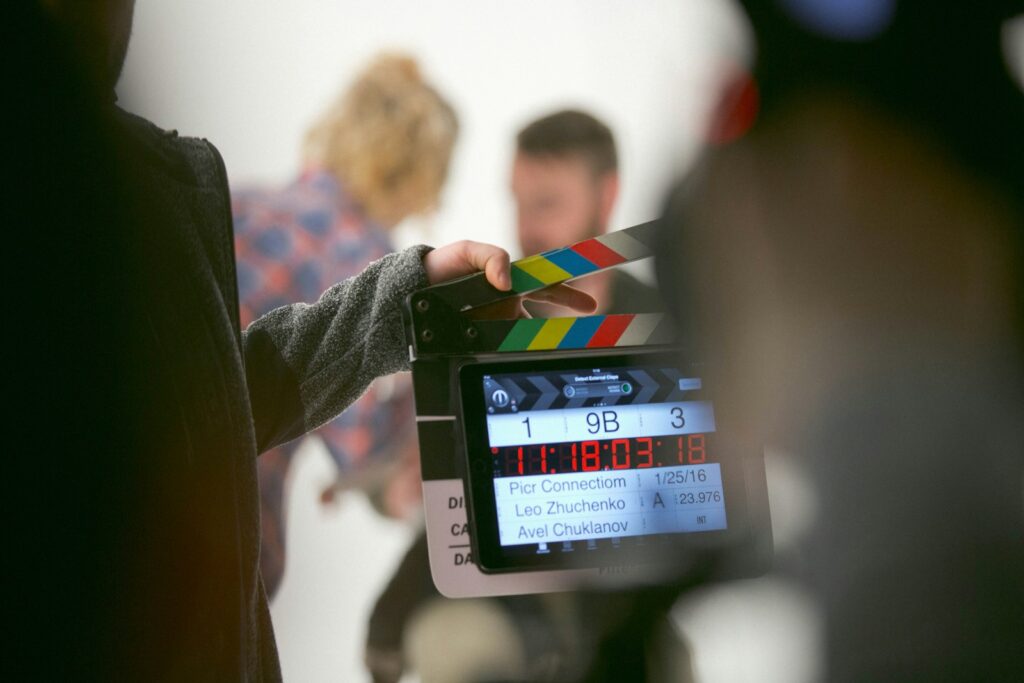
11. **Actors’ Diverse Perspectives: Embracing the Disconnect**While some might perceive a blanket phone ban as an imposition, a significant number of actors who have worked under these strict conditions have lauded it as a profound benefit. Timothy Olyphant, reflecting on his experience on Tarantino’s “Once Upon a Time in Hollywood,” called the policy “one of the greatest gifts that I think he gives the entire crew and all the actors.” This sentiment reveals a surprising upside: the liberation from the constant digital tether.
Rumer Willis, who also worked on the film, echoed this sentiment, noting that without phones, “we then just got to talk. You’re talking with the wardrobe and everybody and just connecting more and being a part of the whole experience.” This highlights the human element, where the forced digital detox encourages genuine interpersonal connections and a stronger sense of community on set. It allows for the kind of organic interactions that often enrich the creative process.
Dakota Fanning further suggested that the policy likely stems from Tarantino’s “high regard for filmmaking,” stating that “for him, it’s such a privilege to make movies that the thought of looking at someone playing Candy Crush (while on set) is upsetting.” For these actors, the ban isn’t a punitive measure but an invitation to fully immerse themselves in the unique privilege of collaborative storytelling, fostering an environment where focus is not just encouraged, but inherently built into the fabric of the workday.
12. **Actors’ Diverse Perspectives: The Need for Digital Tools**Despite the praises sung by many, not all industry professionals are as enthusiastic about rigid phone bans. “Black Panther” actor Chadwick Boseman articulated a contrasting perspective, highlighting the practical necessity of his phone for work-related purposes on set. He candidly stated, “It would be a problem for me,” when discussing phone bans, underscoring that for some, the device is far more than a mere distraction.
Boseman detailed how he utilized his phone as an essential tool for his craft, taking notes, listening to audio clips from his dialect coach, and even queuing up specific music from certain eras to help him get into character. For an actor immersed in the intricacies of a role, a smartphone can be an extension of their preparation, a personal assistant for accessing vital information and mood-setting elements.
From this viewpoint, a blanket ban is seen as overreaching, impinging on an actor’s personal methodology for delivering their best performance. Boseman summarized his stance by asserting, “To me, it’s none of your business what I’m doing with it because it’s a tool for work, so you can’t ban my cellphone.” His perspective introduces a nuanced layer to the debate, challenging the assumption that all phone use on set is inherently distracting or unprofessional.
Read more about: Ford’s Transformative Leap: Unpacking the Historic Headquarters Relocation and Vision for Future Innovation
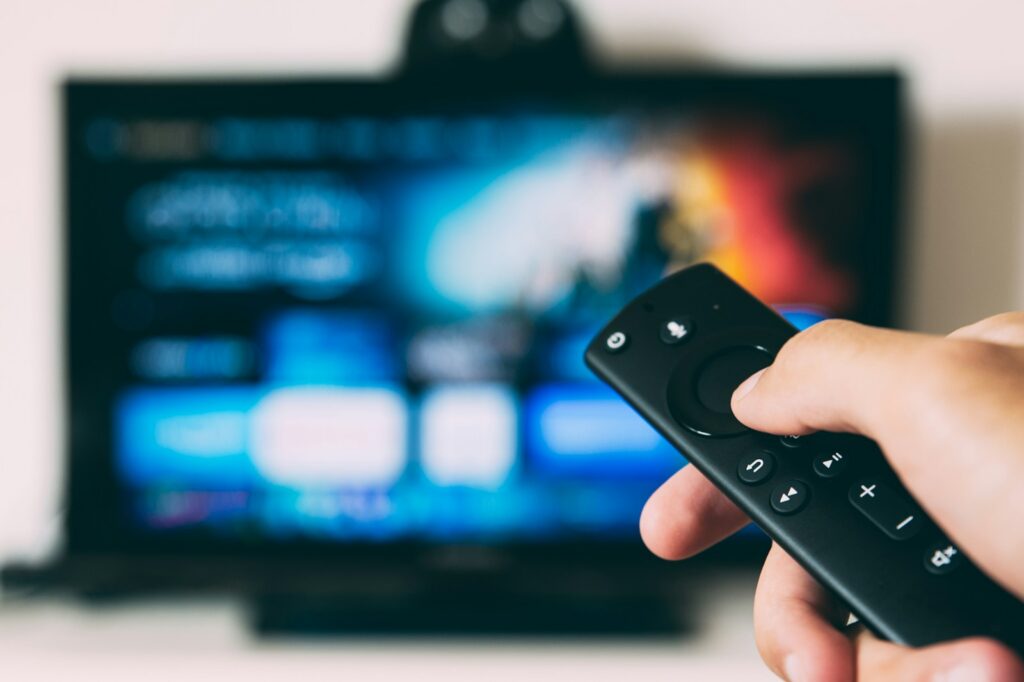
13. **Contrasting Approaches: Directors Who Tolerate Phones**While the no-phone zealots make headlines, many other directors take a decidedly different, more lenient approach, prioritizing a happy and flexible working environment over strict digital abstinence. Director and co-writer Gillian Robespierre, for instance, nearly “laughed out loud” at the idea of boycotting mobile phones on her set, particularly as she had a baby at home during the filming of “Landline.” For her, the ability to stay connected for potential emergencies was paramount.
Robespierre’s approach was practical and people-focused. She openly embraced the presence of phones, even humorously noting that “there might have been a couple scenes where there was even a cellphone under a tush.” This suggests a directorial philosophy that trusts its crew and cast to manage their own distractions while providing them the comfort of connectivity, rather than enforcing a top-down ban. Her focus was on creating a positive atmosphere conducive to creativity, not on digital asceticism.
Similarly, “Marshall” director Reggie Hudlin considered a phone ban, having witnessed the bonding benefits on Tarantino’s “Django Unchained,” but ultimately decided against it. He observed that the crew on “Marshall” grew just as close despite the presence of phones, suggesting that camaraderie isn’t solely dependent on digital deprivation. These contrasting methods highlight that while a phone ban can foster unity, it’s not the only path to a cohesive and engaged film set.
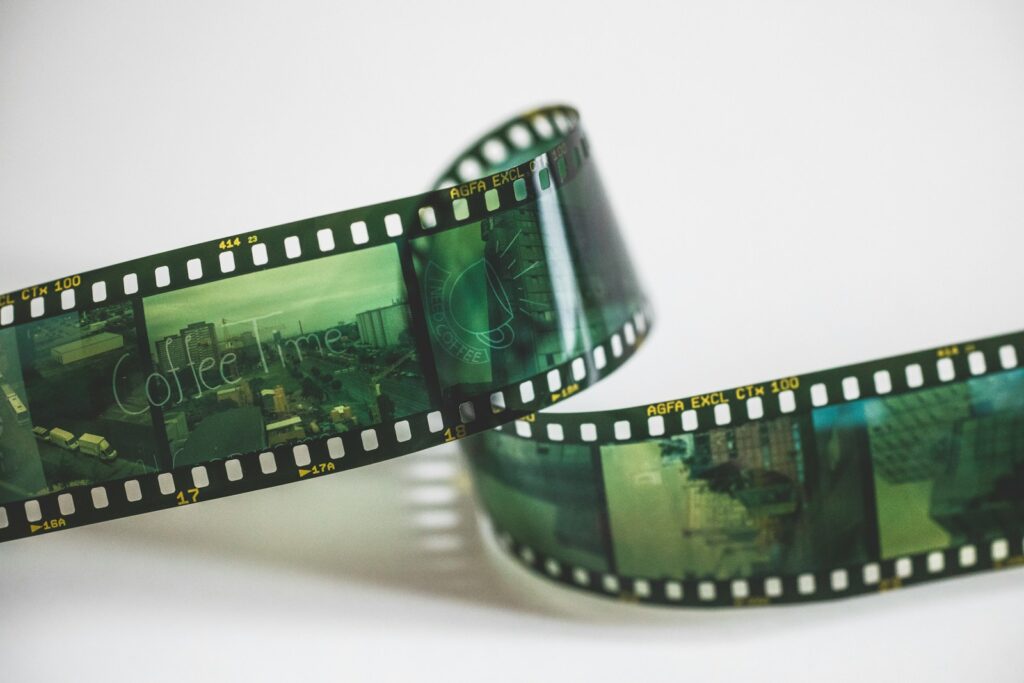
14. **Creating a ‘Period Piece’ Immersion**Beyond the practicalities and philosophical debates, there’s an almost nostalgic, immersive quality to a phone-free set, as articulated by writer-director Azazel Jacobs. When making “The Lovers,” he requested that cast and crew keep their phones out of view, and the result was profoundly refreshing. He described it as “creating a period piece in your life,” a deliberate step back in time to an era before constant digital intrusion.
This intentional disconnection fostered an environment where thoughtful conversations between takes weren’t just possible, but actively enhanced the scenes and the overall creative process. Without the immediate escape into individual digital worlds, people remained engaged with their surroundings, with each other, and with the narrative they were collectively crafting. It underscored a fundamental human need for present interaction that smartphones often inadvertently suppress.
Jacobs’s observation, echoed by actor Tracy Letts who noted similar benefits in stage rehearsals, points to the unique magic that can emerge when everyone’s attention is singularly focused on the immediate moment. “Let’s all step back in time; we didn’t even know how wonderful it was,” Jacobs mused, capturing the almost poignant realization of how much genuine connection and deep focus we may have unwittingly sacrificed in the digital age. It’s a powerful argument for reclaiming that profound, undistracted presence.
Read more about: When Your Premium Coffee Machine Fails: A Comprehensive Guide to Troubleshooting, Repair, and Replacement
The debate around cell phone bans on film sets is far more intricate than simply preventing a ringtone from ruining a take. It’s a microcosm of a larger societal conversation about focus, connection, and the evolving nature of professionalism in a hyper-digital world. From Christopher Nolan’s intellectual dismantling of the ‘multitasking myth’ to Chadwick Boseman’s assertion of a phone as a necessary work tool, and from the tight-knit camaraderie fostered by Tarantino’s discipline to the compassionate flexibility of directors like Gillian Robespierre, the industry is grappling with how to best harness human potential in an age of constant digital demands. The evolving landscape of filmmaking will undoubtedly continue to navigate these questions, seeking that elusive balance between technological convenience and the pure, unadulterated art of storytelling.



